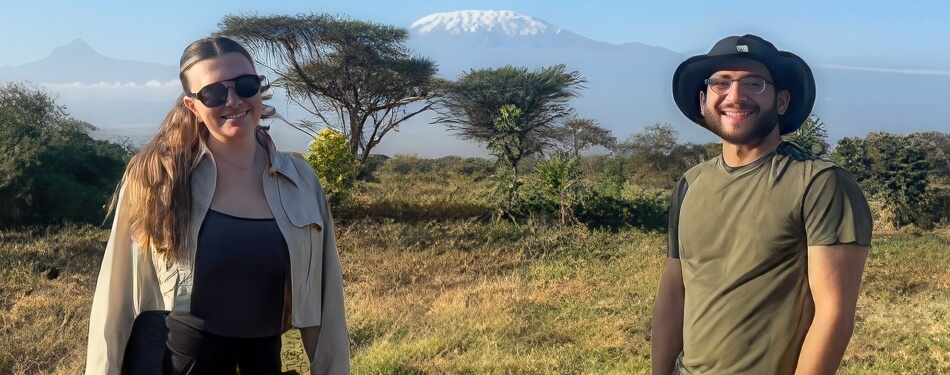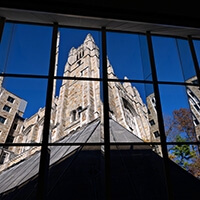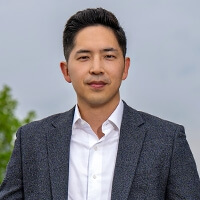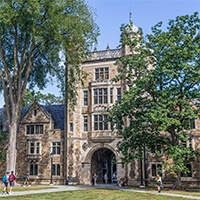During the winter 2025 semester, two teams of Michigan Law students traveled abroad to gain hands-on experience working with clients in emerging markets. Their trips, guided by the International Transactions Clinic (ITC), were made possible through Michigan Law’s Bates Overseas Fellowship and the William Davidson Institute at the University of Michigan.
While one team worked in Kenya alongside six business students from the Ross School of Business’s International Investment Fund (IIF), the other traveled to Costa Rica to advise a sustainable energy startup.
“One of the ITC’s primary goals is to have students learn how to navigate legal issues wherever our clients operate,” said Professor from Practice Timothy Dickinson, ’79. “What better way to learn those skills than to visit foreign jurisdictions with real clients who have real legal issues? Both teams were able to see our clients ‘in situ’ as well as work with local counsel. We hope that more of our clinicians can share in those experiences in the years ahead.”
Navigating emerging markets in Kenya
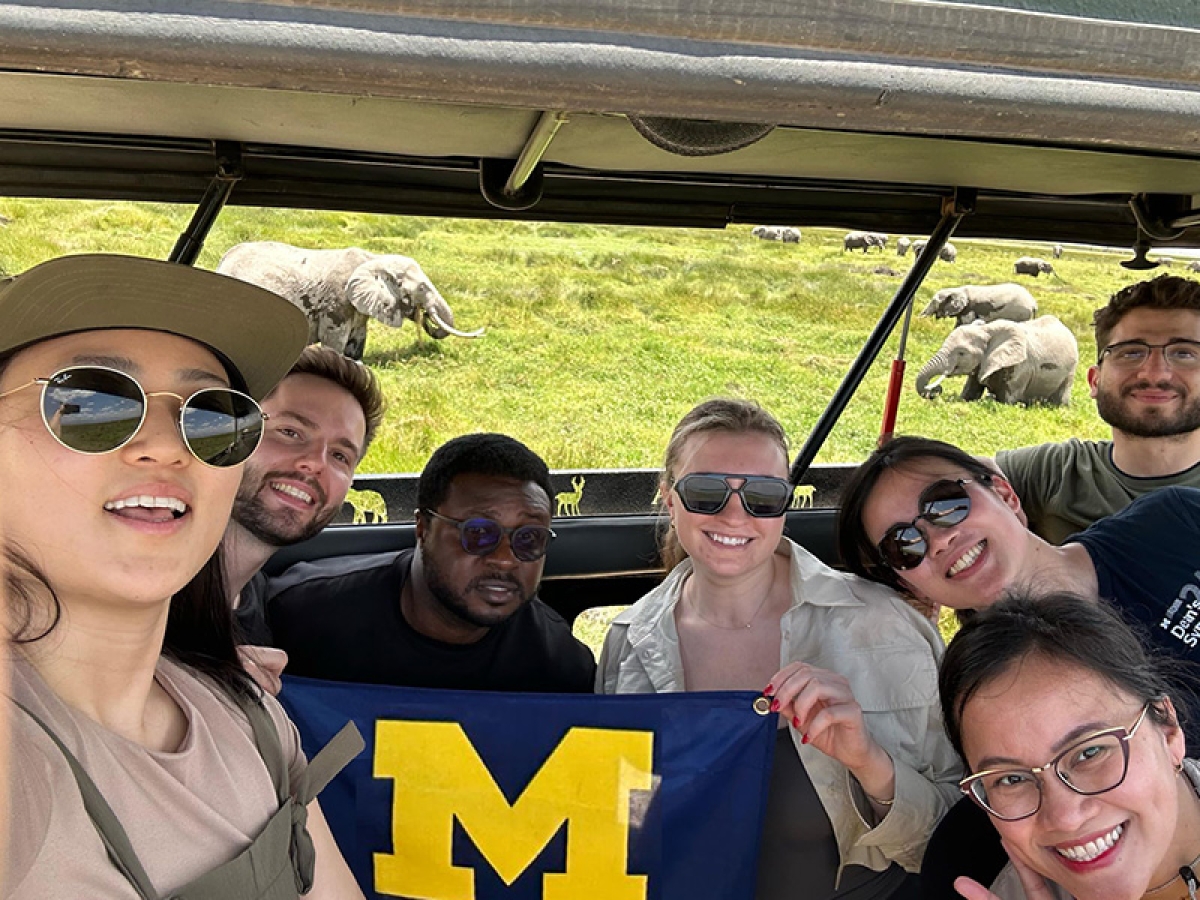
Lydia Peterson, a rising 3L, and Ali Al-Kubaisi, ’25, partnered with six Ross students from the IIF on a trip to Nairobi, Kenya—marking the second consecutive year that a group of law and business students met with clients and potential clients in the city.
The IIF is Ross’s student-run venture capital fund, focusing on early-stage companies in emerging markets. The fund annually conducts due diligence on prospective investments, then partners with law students to assess legal frameworks, risk, and regulatory issues. This year’s Kenya trip involved meeting with existing portfolio companies, potential sourcing partners, and regional venture capital firms.
“Initially, Lydia and I were hesitant to take the trip,” said Al-Kubaisi. “We weren’t sure how we’d best contribute as a legal team, but we reached out to last year’s cohort, and they quickly helped us feel confident and excited.”
Peterson, Al-Kubaisi, and their IIF team members met with three to four contacts each day. These included the IIF’s current portfolio company, two companies considered for investment this year, several potential new sourcing partners, IIF’s current sourcing partner, a number of venture capital funds based in Nairobi, and a nonprofit based in Kibera, Somo.
“The legal work we oversaw varied depending on the meeting,” said Peterson. “The business students focused on market questions, and Ali and I asked about key contracts, forms of investment, and regulatory considerations.”
Al-Kubaisi noted that, throughout their meetings with various contacts, it became clear that business and legal conversations aren’t as siloed as he previously thought; they’re woven in.
“Lydia and I found our roles to be dynamic, and traveling through the ITC is one of the most impactful opportunities I’ve had the opportunity to do during my time at Michigan Law.”
Clean energy innovation in Costa Rica
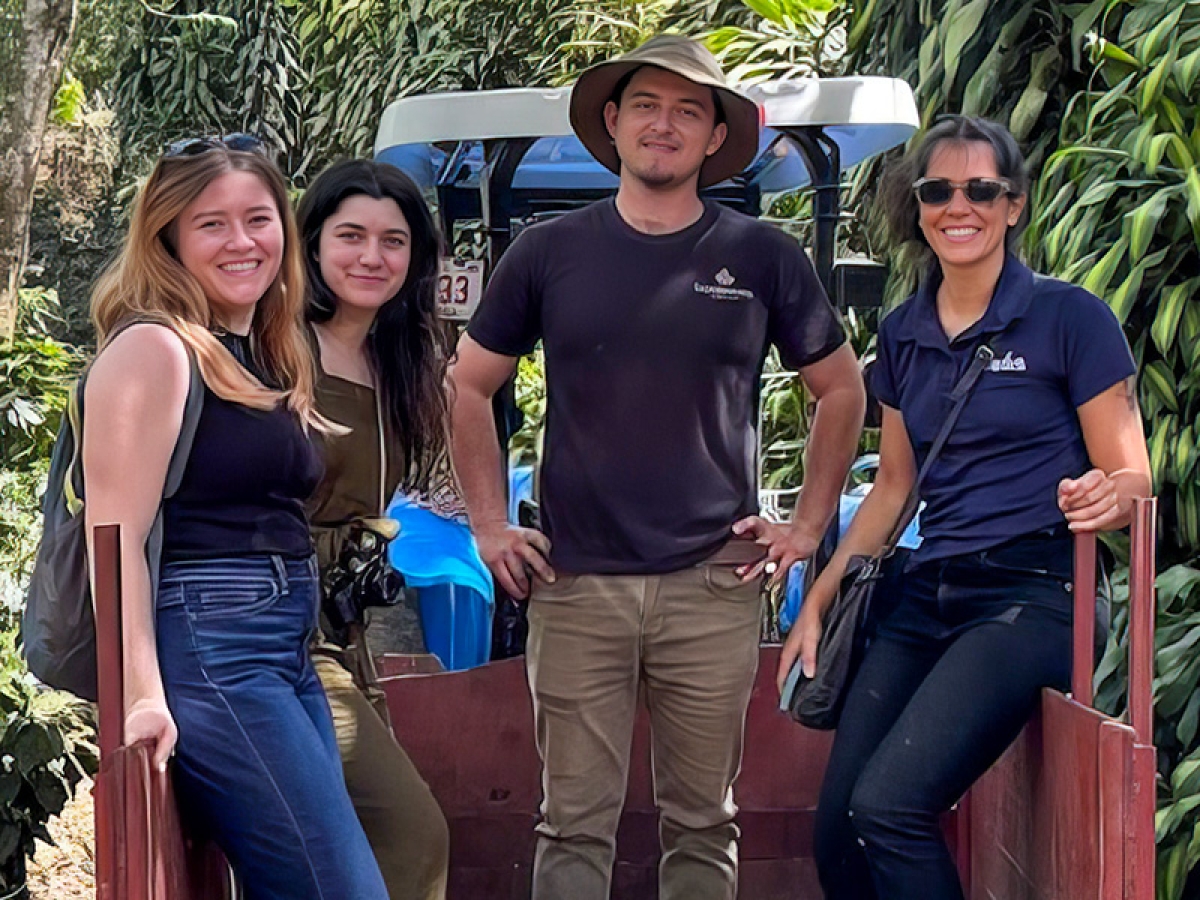
Meanwhile, rising 3L Alana Porter and Carmen Hurtado-Esteve, ’25, met with their client, Poás Bioenergy, in Costa Rica. (Another ITC student, rising 3L David Metzger, collaborated with the team throughout the year but could not attend the trip.)
Poás is a startup focused on converting agricultural waste into clean energy sources. The company was co-founded by Jose Alfaro, a former professor at the University of Michigan School for Environment and Sustainability (SEAS), and Sofia Camarero, a SEAS graduate.
When Porter and Hurtado-Esteve landed in Central America, they visited a processing plant to observe Poás’s technology firsthand.
“We focused on building a relationship with the co-founders and seeing what their day-to-day operations looked like,” said Porter. “Having a better understanding of how the company functioned allowed us to hone our contributions.”
Poás is a business-to-business company that uses agricultural byproducts typically meant for compost, like crop residue from pineapple or coffee beans after being farmed, to create clean, alternative energy sources. When the material is run through their gasification machinery, the outputs are designed to maximize decarbonization potential. One output, syngas, is a fuel alternative, and another, biochar, is a pellet-like fertilizer amendment that can be used in regenerative agriculture.
“Part of their business model is to eventually sell carbon offsets to companies that want to be carbon neutral through a carbon credit system,” said Porter.
The trip proved to be more than a professional opportunity for Porter and Hurtado-Esteve—it was also personally meaningful.
“I speak Spanish and worked in immigration before law school, so I thought working with a Latin American-based company would be rewarding,” said Porter. “Carmen and I almost exclusively spoke Spanish while there, and it helped the process of our work.”
From the classroom to global clients
Seeing firsthand how international legal practice intersects with economic development, entrepreneurship, and global networks left the ITC students inspired and ready for what’s next.
“Participating in the ITC opened my eyes to the breadth of different international work you can do with a legal degree,” said Porter. “I don’t know exactly what I want to do after graduation, but this trip made me lean toward international work.”
Peterson added, “I’d like to thank Timothy Dickinson, David Guenther (’99), Denise Madewell, and Mark Paist from the ITC for their support in our travel. It was a once-in-a-lifetime experience.”

